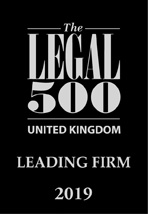The basic principle for recovery of compensation in personal injury and medical negligence cases is to put the injured person back in the position they would have been in if the accident/negligence did not occur. For example, if the Claimant suffered a loss of earnings, then the amount of loss is included as part of the claim. If the Claimant suffered scarring then, if recommended, there could be surgery to lessen the appearance of the scarring available to the Claimant and/or medical grade makeup to give the Claimant the option to hide the scarring.
However, this principle is much less straightforward in serious injury cases where the Claimant is likely to be left with a permanent disability, such as traumatic brain injury cases. The process of litigation is not only to obtain the compensation for the Claimant but to also afford them with the opportunity to make the best possible recovery. The focus on rehabilitation should not be understated. Serious injury litigation can last many years and in the meantime, the needs of the Claimant should be addressed as a matter of priority.
Rehabilitation Code 2015 (‘the Code’)
The Code provides a framework whereby the solicitors for the Claimant and the compensator can work together to ensure that the Claimant receives adequate rehabilitation from the early stages of the litigation. The Code can be engaged even in cases where liability is not admitted which means that, whilst liability investigations remain ongoing, the Claimant is receiving the rehabilitation which can impact their long term recovery.
A Case Manager is appointed by the parties to carry out an Immediate Needs Assessment (‘INA’). A Case Manager is an individual with a relevant previous background in rehabilitation who specialises in assessing the needs of the Claimant. The assessment involves a thorough process of evaluating the Claimant’s medical as well as social, leisure and vocational needs. The Case Manager will then produce an INA outlining recommendations for treatment and improving the quality of life of the Claimant. The recommendations are case-specific and tailored to each Claimant however, below are some examples:
- Treatment - for example neuropsychology, physiotherapy, occupational therapy, speech and language therapy and ophthalmology input.
- Allowance for support workers/carers. This is particularly important to provide as much independence as possible to the injured person. Often, reliance on family and friends for basic care can create an emotional burden and deepen the psychological impact of the injury on the Claimant.
- Vocational therapy. Such programmes are designed to meet an individual’s needs and amongst other things includes functional capacity evaluation, work searches and mapping against an individual’s skills.
- Recommendations for adaptation of the Claimant’s property to lessen the impact of their disabilities on everyday tasks.
- Technology/aids & equipment which provide the Claimant with a maximum amount of independence. This covers a broad spectrum of items but some examples include smartwatches, voice recognition technology, wheelchair accessible vehicles, and specialist cutlery.
The recommendations often also include provision for treatment which would otherwise not be available to the Claimant through the NHS, for example, psycho-sexual therapy.
Rehabilitation following the conclusion of the claim
Throughout the litigation process, many medical reports will be obtained from various experts, the discipline of which will depend on the injury suffered. Those experts will provide a long term prognosis as well as treatment and rehabilitation recommendations for the future. Those reports will also outline recommendations for care, technology and accommodation. The purpose of those recommendations will be to give the Claimant as much independence and quality of life as is possible.
Our specialist serious injury lawyers understand the tragic effect that an injury can have on the Claimant and have the expertise and the resolve to ensure that a sufficient provision is made to allow the Claimant the best chance at recovery and then independence and good quality of life in the future.
If you or someone you care about has sustained an injury as a result of an accident or clinical negligence, please feel free to contact one of our specialist lawyers for a free no-obligation discussion on 0121 355 0011.









Comments